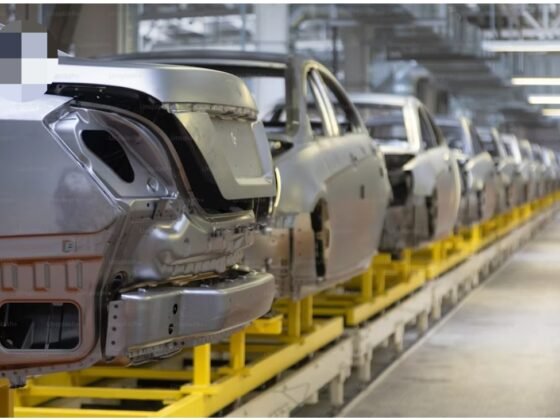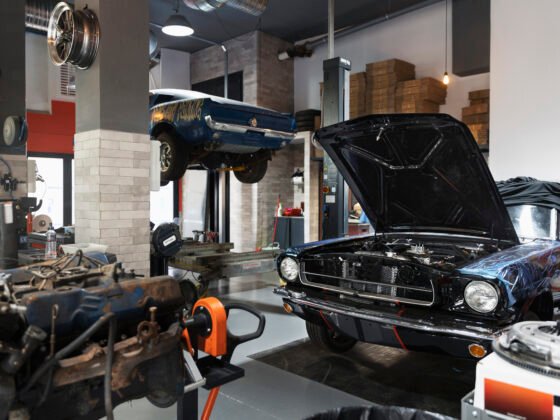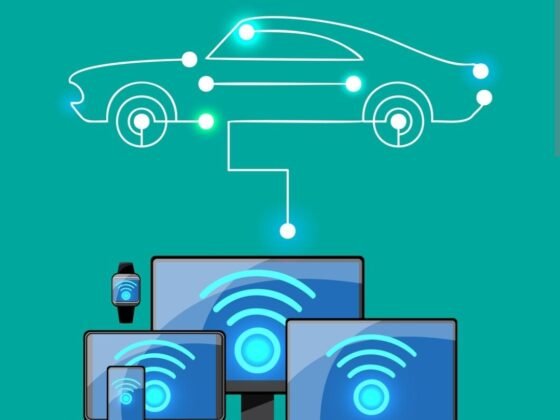In the rapidly evolving automotive industry, software plays a critical role in shaping the future of mobility. C++ has emerged as a dominant programming language for automotive software development, offering a powerful combination of performance, efficiency, and versatility. Automotive C++ is not just about writing code; it’s about building the brains behind modern vehicles. From advanced driver assistance systems (ADAS) to infotainment and autonomous driving, C++ powers many of the cutting-edge features in today’s automobiles.
This article explores the importance of C++ in automotive applications, its advantages, key use cases, and future trends in this domain.
Why C++ in Automotive?
C++ has been a cornerstone of software engineering for decades, particularly in domains where performance and efficiency are paramount. Automotive systems demand real-time performance, high reliability, and low-level hardware interaction, making C++ an ideal choice.
Key Reasons for Using C++ in Automotive:
- Performance and Speed: Automotive systems, such as ADAS and autonomous driving algorithms, require high-speed processing to make real-time decisions. C++ provides the performance needed for such time-critical applications.
- Memory Efficiency: Embedded systems in vehicles have limited memory. C++ allows developers to manage memory manually, optimizing usage.
- Hardware Interaction: C++ enables direct interaction with hardware components like sensors, cameras, and controllers, crucial for automotive systems.
- Portability: C++ code can be written once and deployed across various platforms, making it versatile for different vehicle models and components.
- Support for Object-Oriented and Low-Level Programming: It combines high-level abstractions for complex systems with low-level access for performance optimization.
Key Applications of Automotive C++
1. Advanced Driver Assistance Systems (ADAS)
ADAS features, such as lane-keeping assist, adaptive cruise control, and automatic emergency braking, rely on C++ for processing sensor data, executing algorithms, and communicating with actuators in real-time. C++ ensures quick response times, a critical factor in preventing accidents.
2. Autonomous Driving
Autonomous vehicles require seamless integration of machine learning models, computer vision, and sensor fusion. Libraries like OpenCV and TensorFlow, compatible with C++, are widely used for tasks such as object detection and trajectory planning.
3. Infotainment Systems
Modern infotainment systems include features like GPS navigation, voice recognition, and multimedia playback. C++ is employed to build the software powering these systems, offering a smooth and responsive user experience.
4. Vehicle Control Systems
C++ is essential in designing control systems like powertrain, braking, and steering. These systems need real-time processing capabilities to respond accurately to driver inputs and environmental changes.
5. Communication Protocols
Automotive systems communicate through protocols like CAN (Controller Area Network) and LIN (Local Interconnect Network). C++ libraries and frameworks facilitate the implementation of these protocols, ensuring reliable data exchange.
Automotive-Specific C++ Standards
Safety and reliability are critical in automotive applications. The ISO 26262 standard governs the functional safety of automotive systems, and C++ plays a significant role in achieving compliance.
Key Standards and Guidelines:
- MISRA C++ (Motor Industry Software Reliability Association): Ensures that C++ code adheres to safety-critical automotive standards.
- AUTOSAR (Automotive Open System Architecture): Provides a standardized framework for automotive software, with C++ being a recommended language.
- C++17 and Beyond: Modern C++ standards, like C++17 and C++20, offer features like smart pointers, lambdas, and constexpr, which improve safety, readability, and performance.
Advantages of Using C++ in Automotive Development
1. Real-Time Capabilities
C++ is highly efficient in handling real-time operations, which is vital for automotive systems that rely on precise timing and synchronization.
2. Extensive Libraries
The language boasts a rich ecosystem of libraries for tasks ranging from image processing (OpenCV) to machine learning (TensorFlow, PyTorch).
3. Scalability
C++ allows developers to create scalable applications that can adapt to the increasing complexity of automotive systems.
4. Community Support
As one of the most widely used programming languages, C++ has an extensive community and resources for troubleshooting and development.
Challenges of Using C++ in Automotive
While C++ offers numerous benefits, it also comes with challenges that developers must address:
- Complexity: The language’s syntax and features can be complex, requiring skilled developers to manage.
- Debugging: Manual memory management can lead to bugs, such as memory leaks, which are hard to trace.
- Safety Compliance: Ensuring compliance with standards like ISO 26262 and MISRA C++ demands significant effort.
Future Trends in Automotive C++
1. Integration with AI and Machine Learning
As autonomous vehicles become a reality, C++ will play a pivotal role in integrating AI models for tasks like object detection, decision-making, and navigation.
2. Enhanced Compiler Support
Modern compilers are optimizing C++ for automotive use, offering better performance and safety features.
3. IoT and Connected Vehicles
The rise of connected vehicles and the Internet of Things (IoT) presents new opportunities for C++ in developing robust communication and control systems.
4. E-Mobility
With the transition to electric vehicles (EVs), C++ is instrumental in managing battery systems, energy efficiency, and charging infrastructure.
Conclusion
C++ continues to drive innovation in the automotive industry, powering everything from basic control systems to advanced autonomous driving features. Its unparalleled performance, memory efficiency, and versatility make it the language of choice for automotive software development. While challenges exist, the language’s continuous evolution and the growing adoption of modern standards position it as a cornerstone of automotive technology.
As vehicles become smarter and more connected, the role of C++ will only expand, enabling developers to create the next generation of mobility solutions. For aspiring software engineers, mastering C++ offers a pathway to contributing to one of the most exciting and impactful industries of our time.










